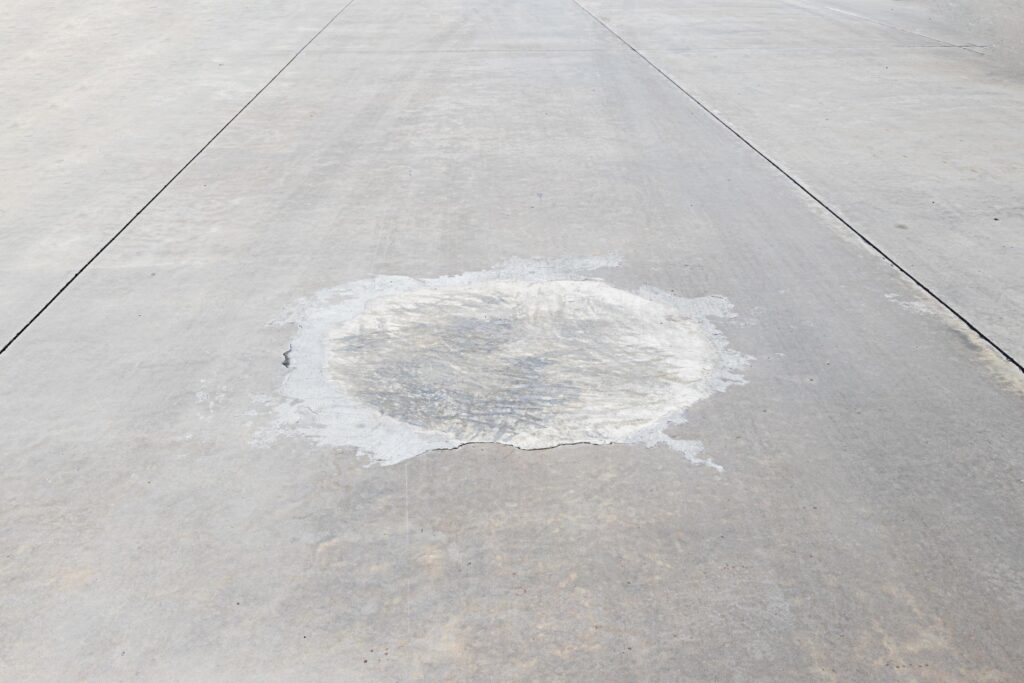Maintaining a robust and reliable road network is vital for the safety and convenience of all road users. Yet, roads are constantly subjected to the harsh mpact of traffic, weather, and environmental factors. To ensure long-lasting and sustainable infrastructure, AERO CONCHEM LLP provides cutting-edge road repair chemical that empower you to address road damage effectively and efficiently.

Road repair chemical are substances used to repair and maintain roads, highways, and other paved surfaces. These chemicals are specifically formulated to address common issues such as cracks, potholes, and deterioration in road infrastructure. The composition of road repair chemical can vary depending on the specific application and the type of damage being addressed. Here are some common components and features of road repair chemical:
- Asphalt Binders: Asphalt binders are commonly used in road repair chemical. These binders typically consist of bitumen or modified bitumen, which act as the primary adhesive and binder material. Bitumen provides cohesion and adhesion to the aggregate particles, helping to form a stable and durable road surface.
- Aggregates: Aggregates, such as crushed stone, gravel, or sand, are often incorporated into road repair chemicals to provide strength, stability, and improved load-bearing capacity. Aggregates help to fill cracks and potholes, providing a smooth and even surface.
- Fillers and Extenders: Road repair chemicals may contain fillers or extenders, such as limestone, fly ash, or silica, to enhance the volume and properties of the repair material. These additives can improve workability, reduce shrinkage, and enhance the overall performance of the repair material.
- Polymer Modifiers: Polymer modifiers, such as styrene-butadiene rubber (SBR) or polymeric resins, are sometimes added to road repair chemical to enhance their flexibility, adhesion, and resistance to cracking. Polymer modifiers can improve the durability and longevity of the repaired road surface.
- Cementitious Materials: In some cases, road repair chemicals may include cementitious materials, such as Portland cement or hydraulic cement, to provide rapid strength development and improve bonding to the existing road surface. Cementitious materials can be used for patching and repairing concrete road sections.
- Antioxidants and UV Stabilizers: Road repair chemical may contain antioxidants and UV stabilizers to protect against oxidation and degradation caused by exposure to sunlight and other environmental factors. These additives help maintain the integrity and performance of the repair material over time.
- Water-Reducing Agents: Water-reducing agents, also known as plasticizers or superplasticizers, are sometimes incorporated into road repair chemicals to improve workability and reduce water demand. These agents enhance the flow and workability of the repair material without compromising its strength or performance.
Maintaining a robust and reliable road network is vital for the safety and convenience of all road users. Yet, roads are constantly subjected to the harsh impact of traffic, weather, and environmental factors. To ensure long-lasting and sustainable infrastructure, AERO CONCHEM LLP provides cutting-edge road repair chemicals that empower you to address road damage effectively and efficiently.
The Role of Road Repair Chemical
Road repair chemical play a critical role in preserving road infrastructure for several key reasons:
1. Extending Road Lifespan: By promptly addressing cracks, potholes, and other damages, road repair chemicals help extend the lifespan of roads, minimizing the need for costly full resurfacing or reconstruction.
2. Safety and Convenience: Smooth and well-maintained roads enhance the safety of all road users, preventing accidents, reducing vehicle damage, and ensuring smoother traffic flow.
3. Cost-Effectiveness: Addressing road issues proactively with the right road repair chemical can reduce long-term maintenance costs and prevent further road deterioration.
4. Environmental Benefits: Using road repair chemical to maintain existing roads is an eco-friendly approach, as it reduces the need for additional construction materials and energy consumption.

